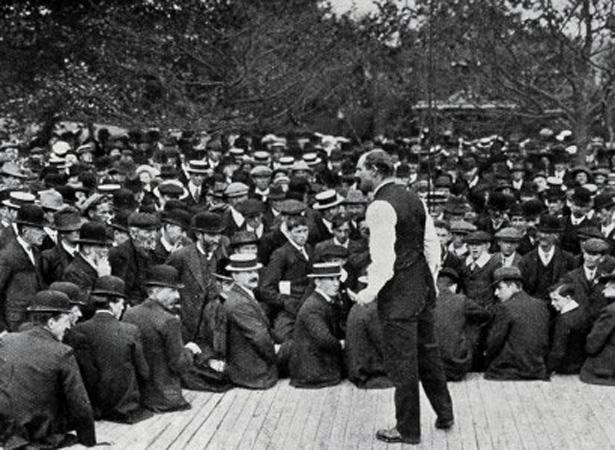
The Great Strike of 1913, which had begun in late October when Wellington waterside workers stopped work, finally ended when the United Federation of Labour (UFL) conceded defeat.
The bitter two-month struggle had involved up to 16,000 unionists across New Zealand and sparked violent clashes between strikers and mounted ‘special’ police – whom the unionists dubbed ‘Massey’s Cossacks’ after the conservative prime minister, W.F. Massey.
The strike had been faltering since early November, when the Auckland and Wellington wharves were reopened, manned by ‘scab’ workers protected by police and specials. A general strike in Auckland, which began on 8 November and involved more than 10,000 workers, was called off on the 22nd (except for watersiders, seamen, drivers and tramwaymen). On 17 December the powerful Federated Seamen’s Union, which had been drawn into the strike against its leaders’ wishes, broke ranks by reaching a deal with shipowners to return to work.
On the 20th the UFL announced that a conference of strikers’ delegates had decided to call off the strike immediately for all workers, except miners. The UFL halted the miners’ strike on the 29th, and most miners – except for the significant number who were blacklisted by employers – returned to work in January 1914.
Read more on NZHistory
'Black Tuesday' – The 1912 Waihi strikeThe defeat of the 1913 strike – The 1913 Great StrikeElsdon Best as a special constable – A sense of place
External links
How to cite this page
'Waterfront strike ends', URL: https://nzhistory.govt.nz/waterfront-strike-ends, (Ministry for Culture and Heritage), updated 20-Dec-2018
